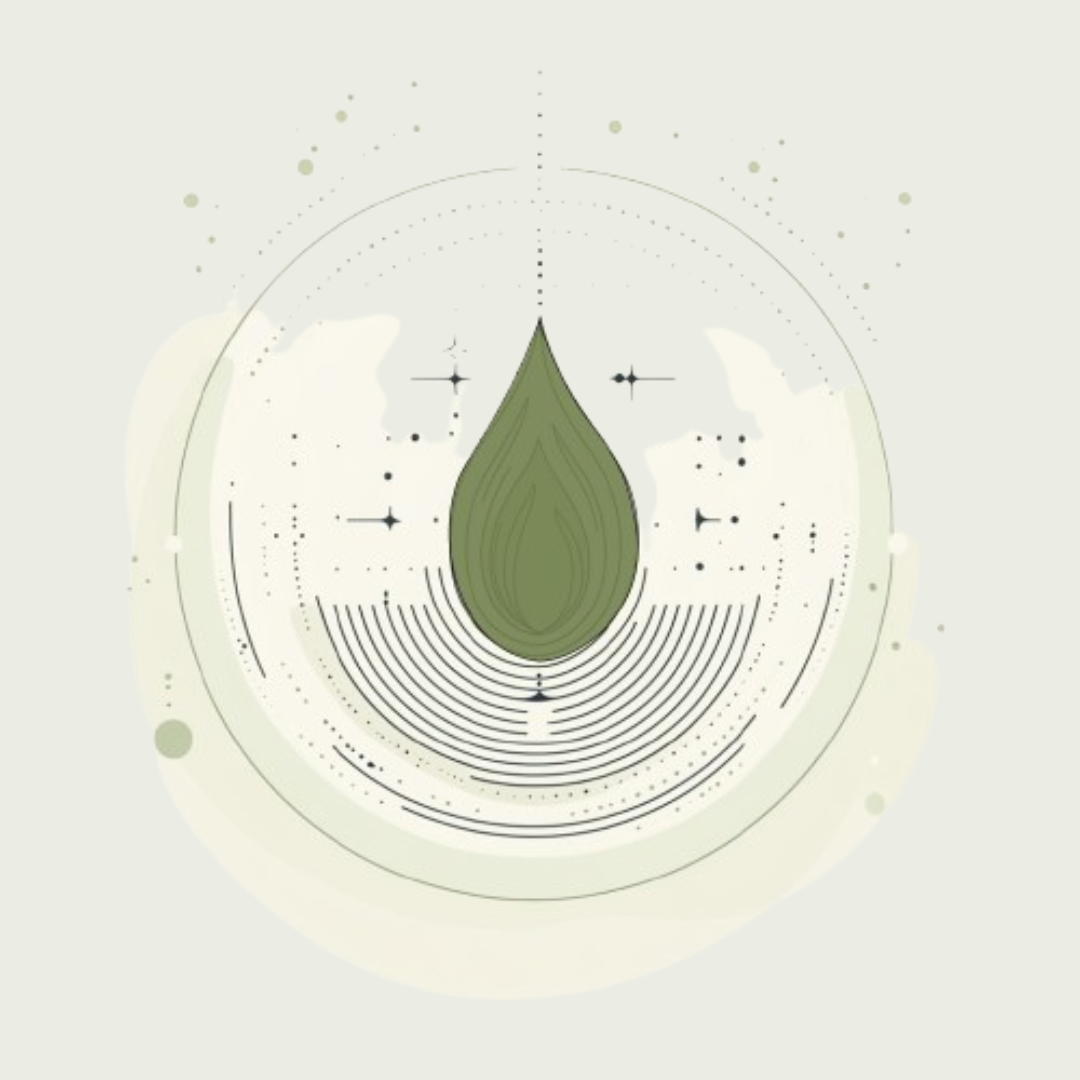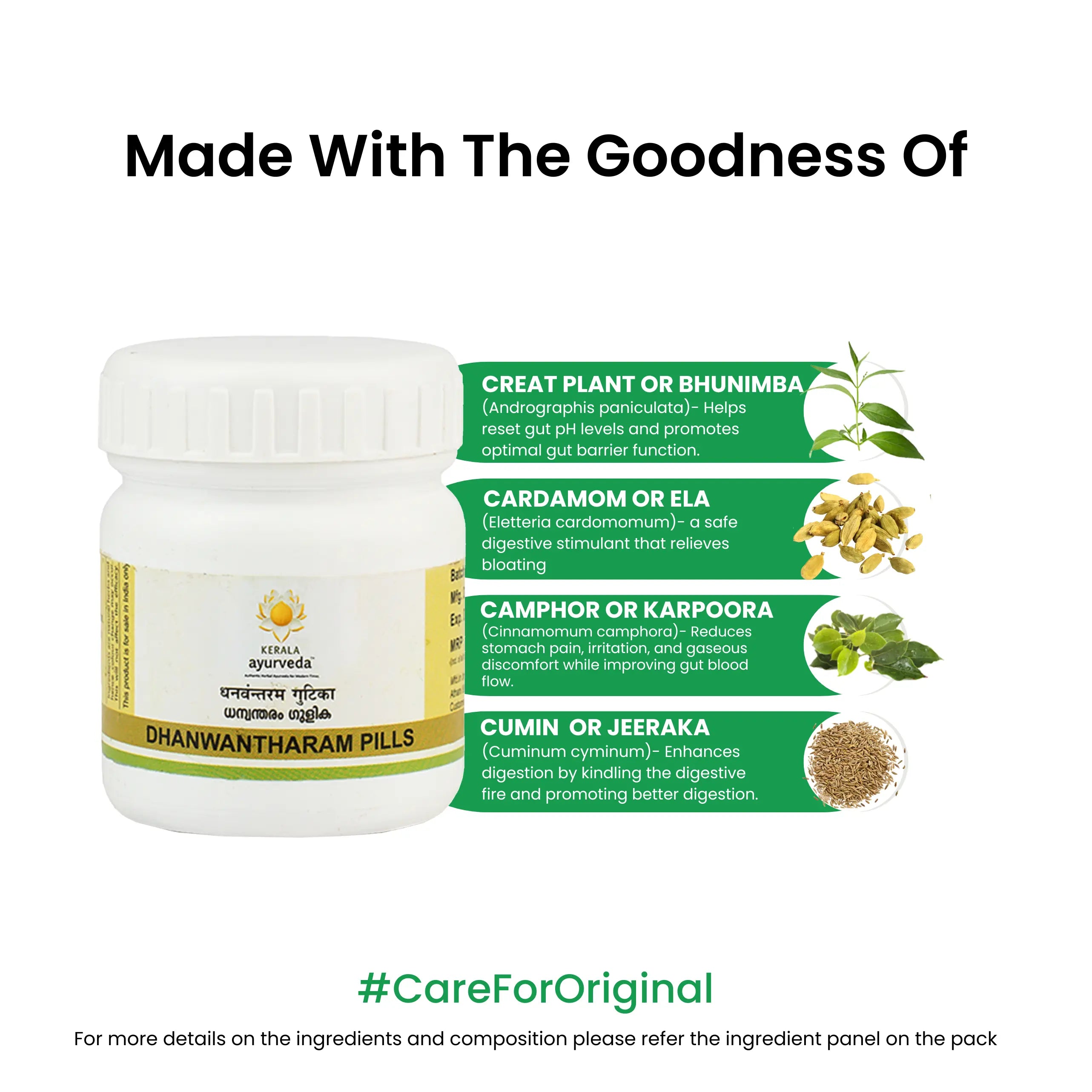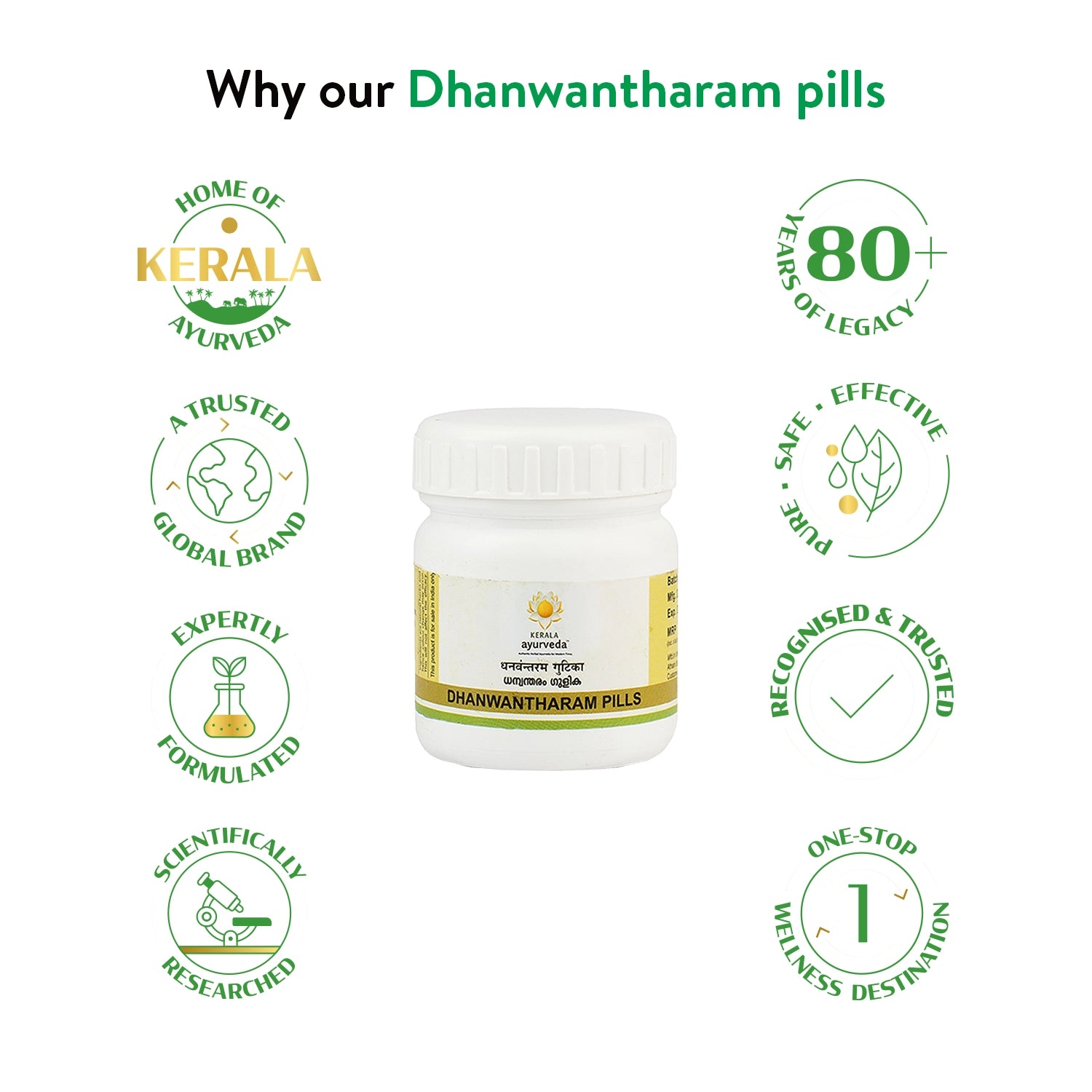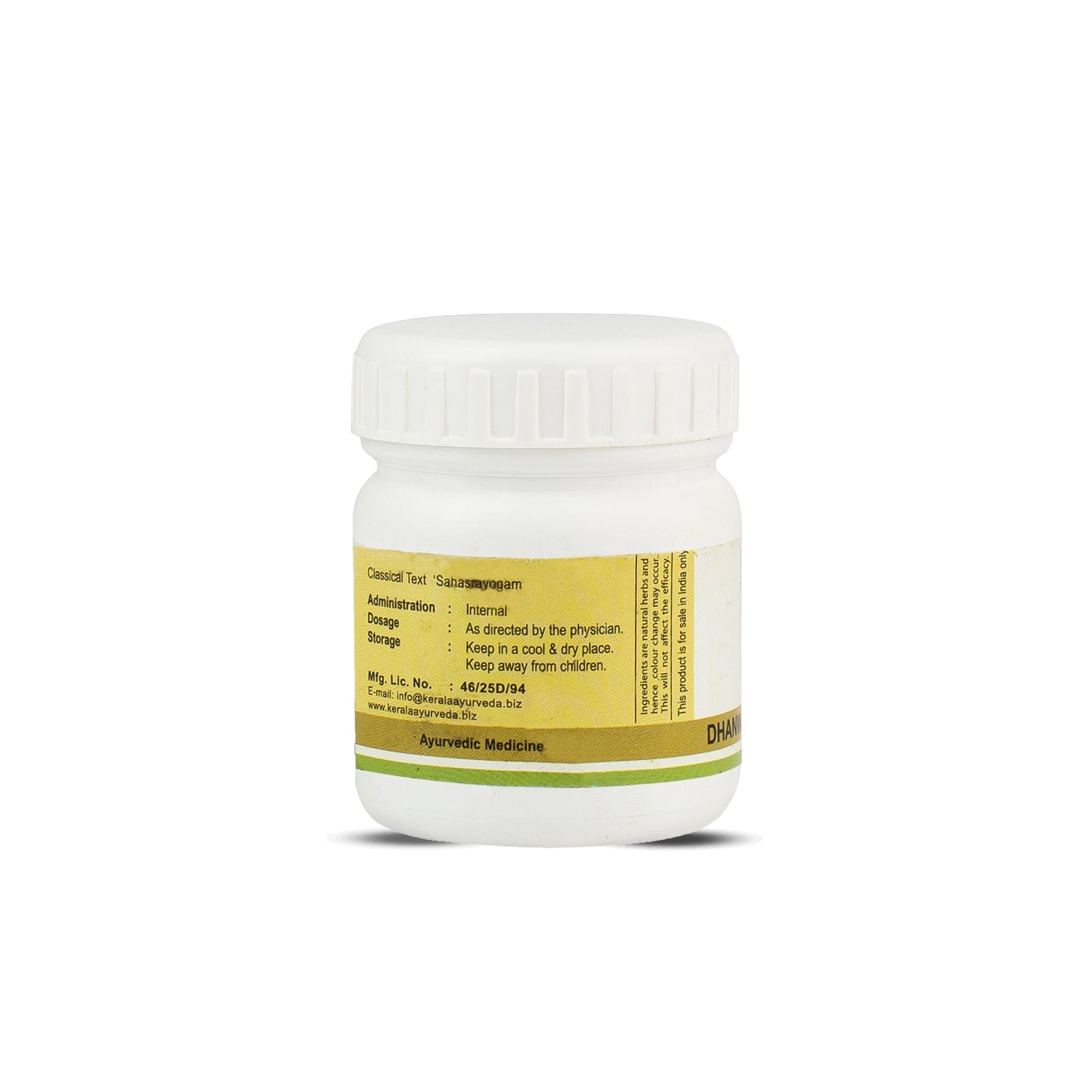Dhanwantharam Gulika (Pills-50 Nos)
Delivery within 2 to 4 days
Country of Origin: India
Do you often find yourself feeling uncomfortable and bloated after meals? Are you tired of dealing with digestive issues that impact your daily life and overall well-being? Look no further than Kerala Ayurveda Dhanwantharam Pills. This powerful herbal remedy is a game-changer for those seeking relief from acidity, bloating, and stomach upset. Its unique blend of digestive and carminative herbs is carefully crafted to provide quick and effective relief from digestive discomfort. Say goodbye to heartburn, gurgling, and burping, and hello to a more comfortable and energized you!
Dhanwantharam Pills relieve these nagging digestive issues, help to pacify Vata dosha, enhance digestion and nutritional absorption, and support overall digestive health. Its potent combination of Chitretta, Camphor, Jeera, and other herbs promotes optimal digestive function, leaving you feeling rejuvenated and revitalised.
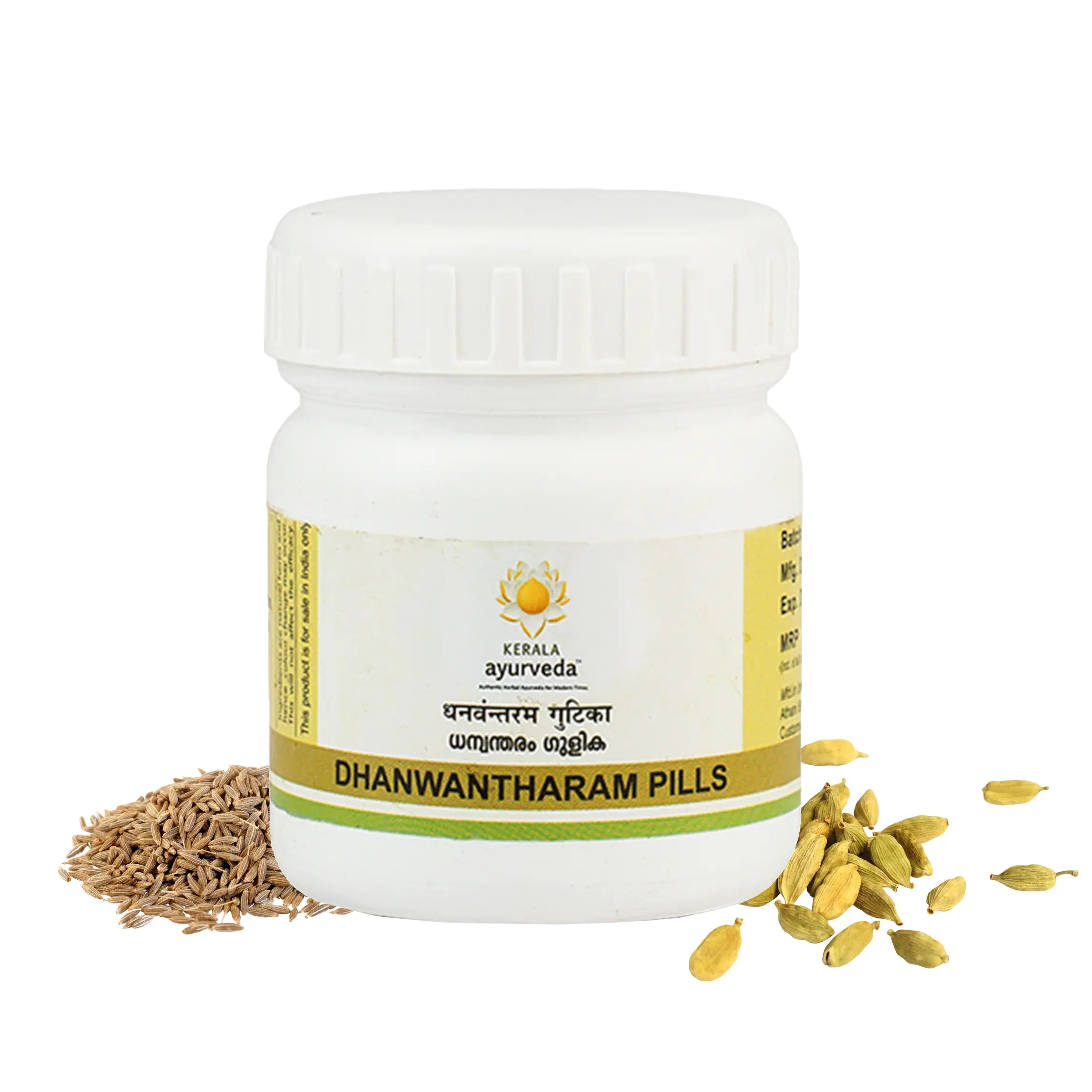
Key Benefits
Ingredients
How to Use?
- Manufactured by: Kerala Ayurveda Limited, Athani Post, Aluva, Ernakulam District, Kerala – 683585, India
- For Queries, Contact: Customer Care: 1800 103 5790; Address: Athani Post, Ernakulam District, Kerala - 683585, India; E-mail: info@keralaayurveda.biz
Will Dhanwantharam pills increase my blood pressure?
No, Dhanwantharam pills are an herbal medicine primarily designed to relieve digestive discomforts such as heartburn, belching, and bloating. They do not cause an increase in blood pressure.
Can I take Dhanwantharam Pills after food?
Yes, Dhanwantharam pills can be taken before or after food at your convenience. It gives quick relief from acidity and gas.
Is it safe for lactating mothers and pregnant women?
Yes, it is safe for lactating mothers and pregnant women.
How long should I take the pills?
Dhanwantharam pills are a quick relief remedy for abdominal gas and acidity. You can take it when required; the pills typically show results in 15-20 minutes.


